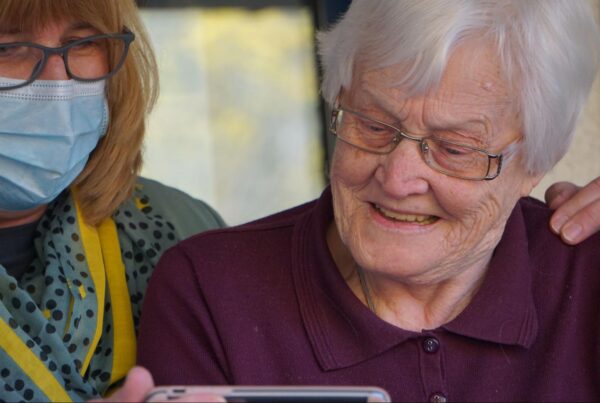Caring for a loved one with Alzheimer’s disease can be lonely. Alzheimer’s challenges families and carers, as well as those who experience it. Many carers experience loneliness and grief. And there are a lot of caregivers out there feeling the same sense of isolation. According to the Alzheimer’s Association, 6.5 million Americans aged 65 and older experience Alzheimer’s dementia. And as our population ages, that’s expected to increase. That’s a lot of lonely people.
Everyday Challenges
Caregivers know there are many daily challenges to Alzheimer’s disease. Behavioral and personality alterations can be difficult. Your loved one may become unusually aggressive, start wandering off and could experience hallucinations. Those with Alzheimer’s dementia often experience difficulties with sleeping and eating and can awake disoriented and afraid.
Family Impacts
As the family struggles to adjust to their loved one’s illness, this triggers conflict. A diagnosis of Alzheimer’s can mean extensive changes in relationships, roles, needs and experiences. Discussions must be had around finances and sharing obligations which can cause clashes and hurt feelings. Worse still, some have to make all those decisions by themselves, with no other family support.
Who Cares for the Caregivers?
Family members go through a grieving process after an Alzheimer’s diagnosis. And while grieving and adjusting, they’re still expected to manage many tasks which can be extremely difficult without training and support. The grief caregivers feel is often ongoing; many say they feel the disease is taking away the one they love. They mourn for the loss of shared memories, experiences, hopes and plans.
Many initially experience denial:
- Trying to normalize unusual and problematic behaviors
- Hoping the diagnosis is wrong
- Hoping their family member will get better
- An attempt to ignore obvious changes
As time progresses and the diagnosis can’t be ignored, some feel:
- Anger and frustration
- Resentfulness towards other family members who can’t or won’t provide care
- Resentfulness towards their loved one – caring for a person with Alzheimer’s is a demanding task
- Loneliness – a feeling of abandonment
Caregivers commonly experience guilt:
- They wish they had treated their loved one better before the diagnosis
- They simply need a break from constant caregiving and feel terrible about this
- Some worry that other family members are coping better – that they’re not doing enough
- Many caregivers feel guilt about feeling irritation, even though it’s perfectly normal
And sometimes people feel ashamed because they simply must accept help.
Practice Kindness
We are often more demanding of ourselves than of others. Try to practice kindness on yourself too and accept that it’s normal to need support. The Alzheimer’s Association of America understands that nobody should have to face Alzheimer’s alone. And there are many caring health professionals who can offer practical and real support. Every family and every person is unique – but all share a desire to find meaning, purpose and joy in your experiences, despite the daily challenges. You may be feeling lonely, but you are not alone. Alzheimer’s support is available. Please ensure you’re receiving the support you need. And remember that for the best possible outcome, you must care for the caregiver too.






